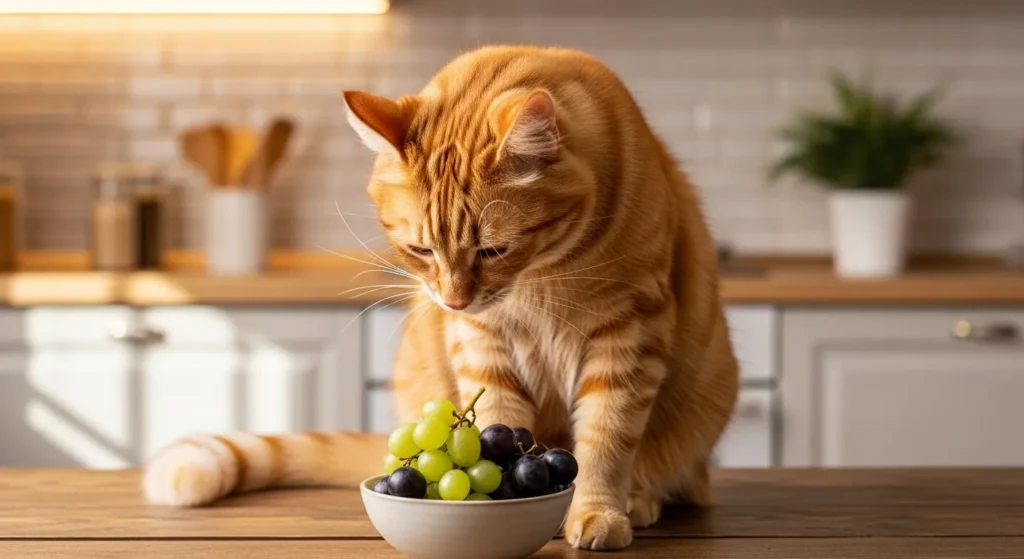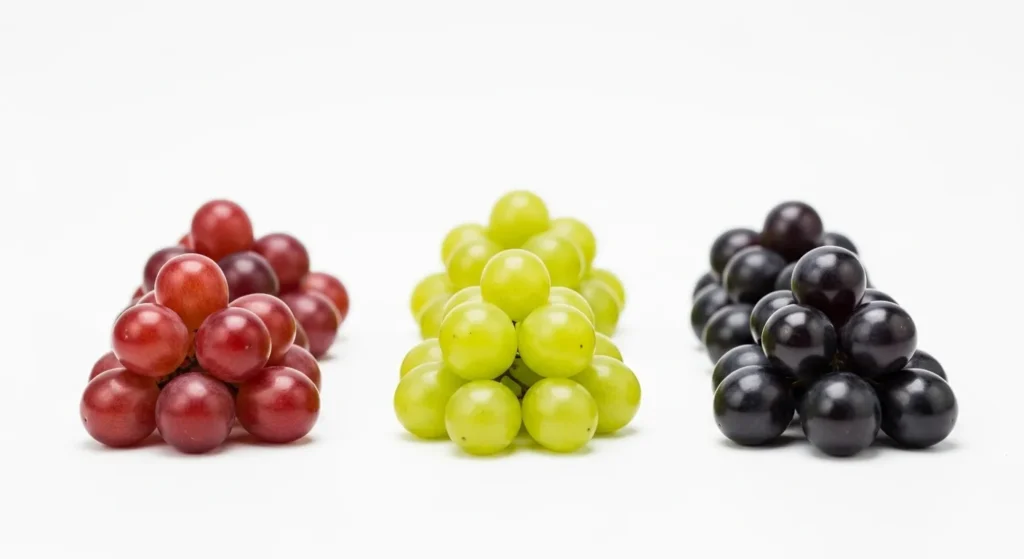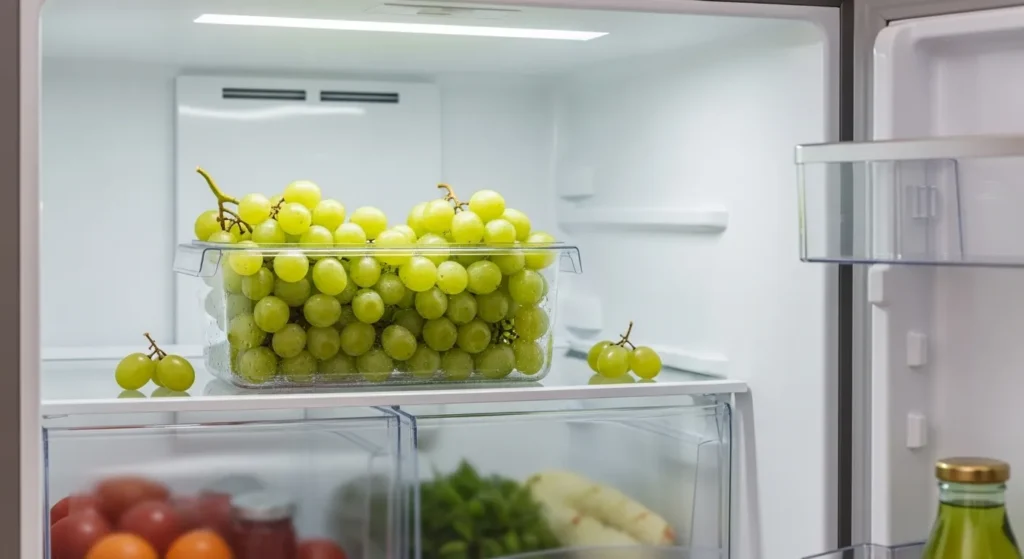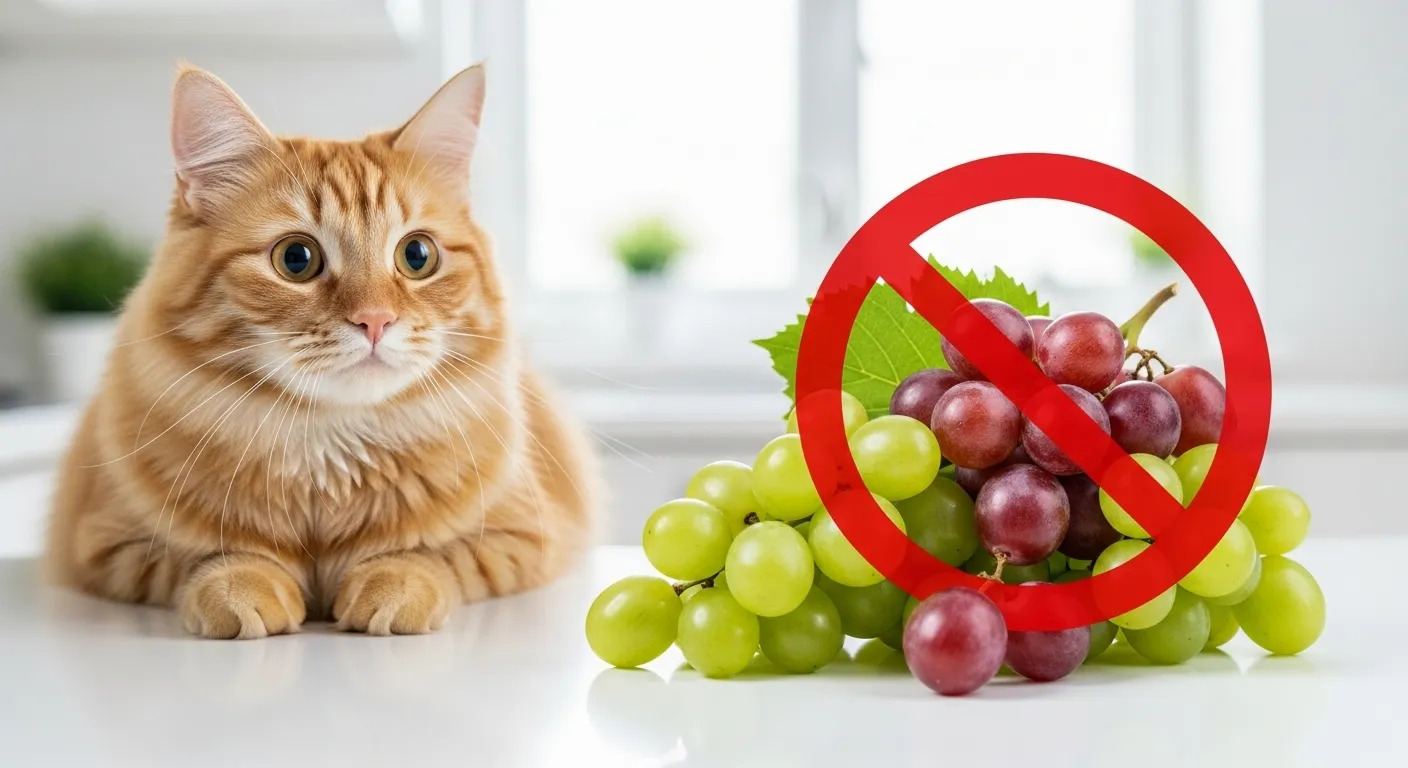Grapes are a tasty snack for humans, but can cats eat them? If your cat sneaks a grape, you might wonder if it’s safe. This guide explains why grapes are dangerous for cats, what to do if your cat eats one, and safe fruit alternatives. We’ve researched top sources to ensure this information is accurate and up-to-date as of September 2025.
Why Are Grapes Toxic to Cats?
Grapes and raisins are toxic to cats and can cause serious health issues, including kidney failure. While the exact toxic compound is not fully understood, recent studies point to tartaric acid as a likely culprit. This acid may damage kidney cells, leading to severe complications. Unlike dogs, where grape toxicity is well-documented, cases in cats are less common but still serious. Cats are obligate carnivores, meaning their diet should focus on meat, not fruits like grapes.
- Toxicity Risk: Even one grape can be harmful, though effects vary by cat.
- Symptoms: Vomiting, diarrhea, lethargy, reduced appetite, and decreased urination may appear within 12–24 hours.
- Kidney Damage: Without quick treatment, grapes can cause acute kidney failure, which can be life-threatening.

What Happens If a Cat Eats a Grape?
If your cat eats a grape, act quickly. The risk of toxicity depends on the amount consumed, but even a single grape can cause problems. Here’s what to watch for and do next:
Signs of Grape Toxicity
- Vomiting or diarrhea within 12–24 hours
- Lethargy or weakness
- Loss of appetite
- Abdominal pain or rapid breathing
- Reduced urination or ammonia-like breath
- In severe cases, coma or death within 48 hours
Immediate Steps to Take
- Contact a Veterinarian: Call your vet or an emergency clinic immediately. Time is critical to prevent kidney damage.
- Do Not Induce Vomiting: Leave this to professionals, as improper methods can harm your cat.
- Monitor Symptoms: Note any changes in behavior, appetite, or urination to share with the vet.
- Visit the Vet: Your vet may induce vomiting, administer activated charcoal, or provide IV fluids to flush toxins.
For quick symptom checks, try our Pet Symptom Checker to assess your cat’s condition before visiting the vet.
Are All Types of Grapes Dangerous?
Yes, all grapes and grape products are risky for cats. This includes:
- Red, green, black, or purple grapes
- Seeded or seedless varieties
- Organic or conventionally grown grapes
- Raisins, currants, grape juice, jams, or baked goods with grapes
Raisins are especially dangerous because they are concentrated, packing more toxins into a smaller form. Grape seeds also pose a choking hazard.

Why Don’t Cats Need Grapes?
Cats are obligate carnivores, meaning their bodies are designed to process meat, not fruits. They lack sweet taste receptors, so grapes don’t appeal to them nutritionally. A high-quality cat food provides all the nutrients your cat needs. Feeding grapes adds no benefit and only risks harm. For more on cat nutrition, check our Pet Food Safety Checker.
Safe Fruit Alternatives for Cats
While grapes are off-limits, some fruits are safe for cats in small amounts. Always consult your vet before offering new foods. Safe options include:
- Apples: Remove seeds and core; offer small, peeled pieces.
- Blueberries: High in antioxidants, safe in moderation.
- Watermelon: Seedless and rind-free, a hydrating treat.
- Bananas: Small slices are okay but high in sugar.
Learn more about safe fruits in our post What Fruits Can Cats Eat?.
How to Keep Grapes Away from Your Cat
Preventing access to grapes is key to keeping your cat safe. Here are practical tips:
- Store Grapes Securely: Keep grapes in the fridge or a cat-proof container.
- Clean Up Spills: Pick up dropped grapes immediately.
- Avoid Table Scraps: Don’t share foods containing grapes or raisins, especially during holidays.
- Check Ingredients: Ensure snacks like raisin bread or fruit cakes are out of reach.
For more tips on cat safety, read Are Poinsettias Poisonous to Cats? or Are Carnations Toxic to Cats?.

Frequently Asked Questions
Can Cats Eat One Grape Safely?
No. Even one grape can cause toxicity in some cats. Contact your vet immediately if your cat eats a grape.
Are Raisins Worse Than Grapes for Cats?
Yes. Raisins are dehydrated grapes, concentrating the toxins, making them more dangerous.
What If My Cat Ate a Grape but Seems Fine?
Some cats show no symptoms but can still develop kidney damage. Call your vet for guidance, even if your cat seems okay.
Are There Safe Fruits for Cats with Diabetes?
Fruits are high in sugar and not ideal for diabetic cats. Consult your vet for diet recommendations.
For more pet health questions, try our Pet Symptom Checker or explore Can Cats Eat Strawberries Safely?.
Conclusion
Cats should not eat grapes or raisins due to the risk of kidney failure and other health issues. If your cat consumes grapes, contact a veterinarian immediately. Stick to cat-safe treats like small pieces of apple or blueberries, and always check with your vet before introducing new foods. Use our Pet Food Safety Checker to ensure your cat’s diet is safe. Keep grapes out of reach to protect your feline friend.
